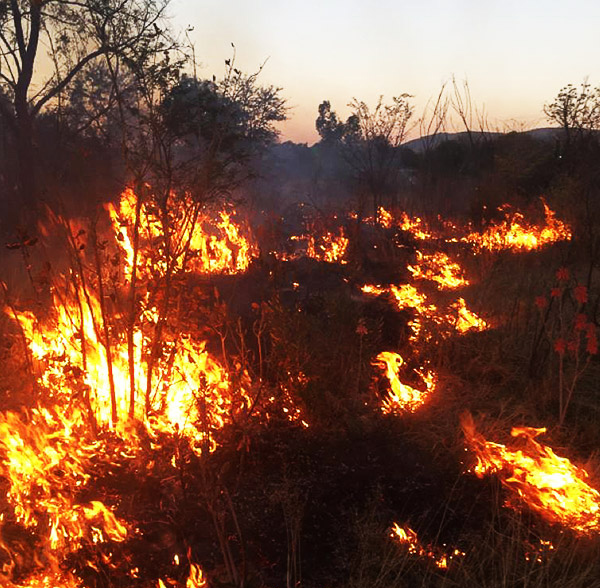Fires, especially uncontrolled run-away bush fires, are not only a risk to life, but also to property, the environment, businesses, livelihood, and even tourism.
Without preventative measures, bush, mountain and veld fires will continue to burn for as long as the weather is favourable and there is vegetation, killing and destroying everything in its wake.
In order to control the outbreak of veld, mountain and bush fires any person owning, or occupying land has a legal duty and responsibility to ensure that veld fires do not break out on their land. Furthermore, these individuals and businesses also have a legal obligation to ensure that any potential veld fire risk is managed, and that fire prevention controls are in place at all times.
In South Africa, the National Veld and Forest Fire Act seeks to regulate and control the management and prevention of fires. Adherence to the Act is imperative, because an insurance claim can be rejected if you are found in contravention thereof.
In a nutshell, the main focus areas of The National Veld and Forest Fire Act, 1998 (NVFFA) states:
1. Purpose of the Act
The purpose of the NVFFA is to encourage the development of fire management practices, which are aimed at preventing, combating and minimising veld, forest and mountain fires throughout South Africa.
2. Compulsory clauses
3. Non-compulsory clauses
Presumption of negligence
This section of the Act allows the courts to presume negligence in cases of civil claims where someone has suffered a loss from a veld fire. The injured person, or claimant, must first prove that he or she has in fact suffered a loss before the court presumes negligence on the part of the person against whom the claim is laid, the defendant. The claimant must also prove that the defendant actually did wrong in causing the fire or allowing it to spread, that is, committed an offence under the Act. This presumption stands until the defendant is able to prove that he or she was not negligent. Presumption of negligence does not apply to members of Fire Protection Associations (FPAs).
Important:
Die Groot Ontbyt Interview 1 September 2022
On Thursday, 1 September 2022, Thomas de Wet spoke to Die Groot Ontbyt about fires and our responsibility as South Africans to comply with the National Veld and Forest Fire Act.
Watch the interview here:
Die Groot Ontbyt Interview 2 September 2022
Thomas de Wet spent time with Mia Slabbert from GROOTplaas on 2 September discussing the National Veld and Forest Fire Act.
Watch the interview in Afrikaans here:
Sources:
Department of Tourism: Republic of South Africa
https://tkp.tourism.gov.za/Style%20Library/Toursim%20Compendium/Compendium%20Set%202/pdfs/national-tourism-phase2_national-veld-and-forest.pdf
Department of Water Affairs and Forestry: Republic of South Africa
https://www.daff.gov.za/doaDev/sideMenu/ForestryWeb/webapp/Documents/ForestFire/192.168.10.11/nvffa.html
South African Government
https://www.gov.za/documents/national-veld-and-forest-act


